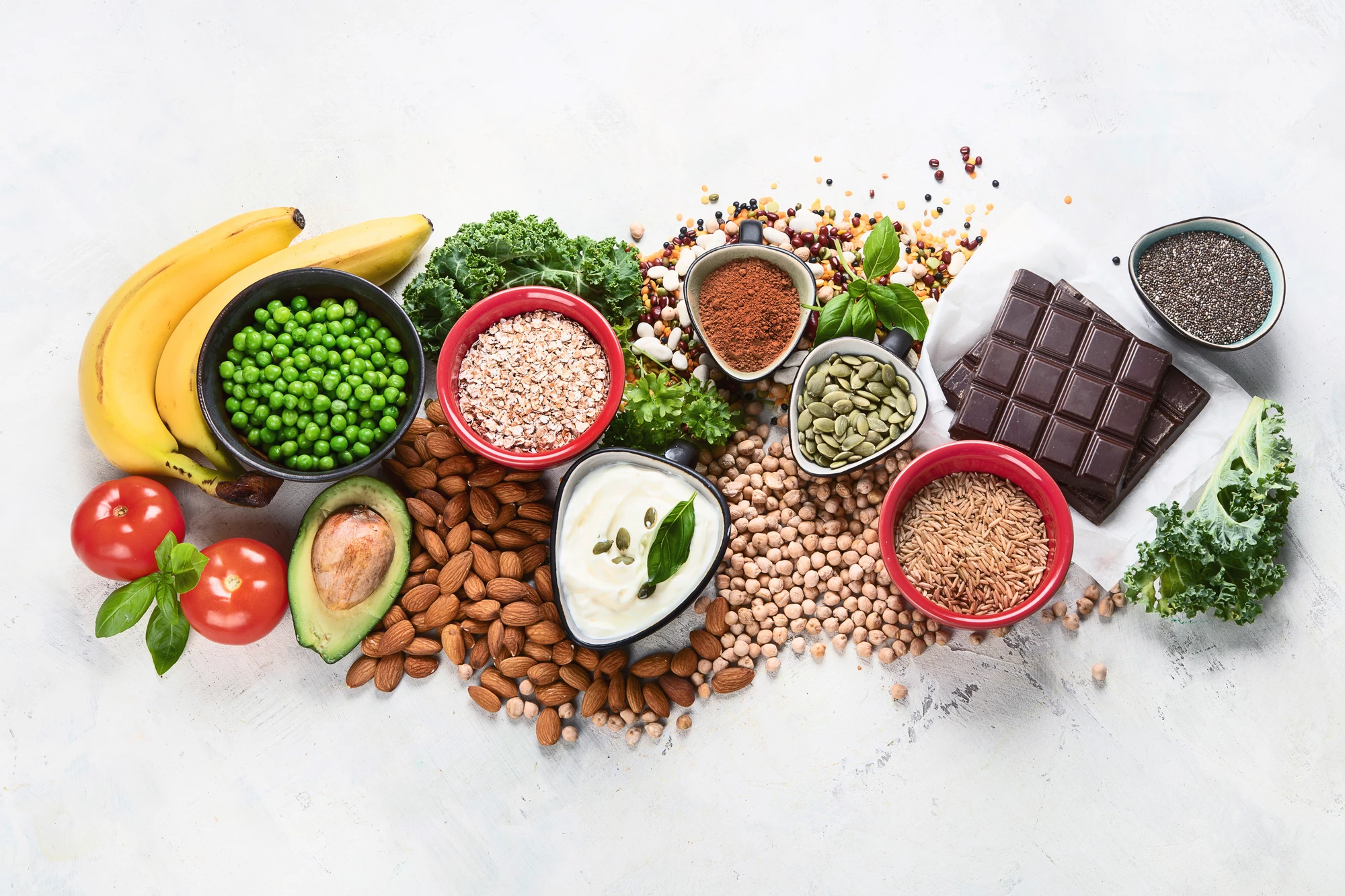While 2023 saw some major breakthroughs in the fields of medicine and biology (daily cancer pill anyone?), it was also a year in which researchers homed in on a variety of relatively small and simple lifestyle modifications that can positively impact human health. These are discoveries you can use right now to potentially boost your health, fight disease, and live longer. As the year draws to a close, we thought we'd share some of them with you so that you can put a little science power behind whatever winds up on your resolution list this year.
Add some milk to your coffee

Two cell-based lab studies reported this year found that adding a little milk to your coffee could boost its anti-inflammatory properties. That's thanks to the way the cysteine protein in milk interacts with two compounds known as polyphenols in coffee. Even if you don't feel like taking your coffee with cream though, you might still be able to get benefits from the drink. Another study showed that higher blood caffeine levels were associated with lower body mass index, lower body fat, and a lower risk of type 2 diabetes. Prefer tea? That's good too. A mouse study showed that the green tea known as matcha was effective in alleviating depression, while the fermented tea known as kombucha was shown to lower blood glucose levels in type 2 diabetics.
Eat earlier

A study of over 103,000 people this year showed that for each hour the first meal of the day was delayed, the chance of developing cardiovascular disease went up by 6%. So someone who has breakfast at 10 am versus 7 am would have an 18% higher risk of developing some kind of cardiovascular issue. It also found that those who eat after 9 pm had a 28% risk of developing cerebrovascular disease like stroke versus those who finished eating for the day before 8 pm.
Get down. And get back up again

Ever notice how your brain can begin to get foggy after sitting down for too long? So have researchers. That led them to conduct a study which revealed that executing just one minute of half-squats carried out every 20 minutes during prolonged periods of sitting boosted the cognitive abilities of the participants. Each repetition lasted about 4 seconds, meaning that you'll need to do about 15 squats every 20 minutes to see the benefits.
The short-exercise-routine theme appeared elsewhere in 2023 research. One study revealed that short bursts of vigorous physical activity like going up stairs or carrying groceries was effective at cutting cancer risks, while another backed up the squat idea, showing that just six minutes of exercise a day was able to boost a brain protein shown to optimize cognitive function. Yet another bit of research showed that just 75 minutes per week of physical activity was enough to reduce the risk of dying prematurely.
Nap if you need to

Finally a bit of science-backed health advice that everyone can get on board (or is that in bed?) with. A study from University College London this year found that people who are natural nappers had larger total brain volumes than those who weren't. In fact, the average difference in total brain volume between predisposed and non-predisposed nappers was equal to 2.6 to 6.5 years of aging.
Walk, even just a little

By now, most of us are familiar with people who check their smartwatches throughout the day, trying to hit a goal of 10,000 steps. But research out of Poland showed that walking less than half that – just 4,000 steps per day – led to a reduced risk of dying from any cause. More walking was shown to reduce cardiovascular disease risk and boost the death-defying effects of the exercise, but it's nice to know that even walking a little can have serious health benefits.
If you do decide to incorporate walking into your fitness plans for 2024, you might want to be sure to pick up the pace. Another study this year found that walking between 3-4 mph (5-6 km/h) led to a 24% lower risk of getting type 2 diabetes, while going above that rate slashed the risk of getting the disease by 39%.
Give your heart some dietary love

The American Heart Association evaluated 10 diets this year to see how they ranked in terms of how they can improve your cardiometabolic health. The winner was the DASH eating plan, which emphasizes low salt, as well as minimizing added sugar, alcohol, and processed foods. In second place was a pescatarian diet followed by the Mediterranean diet, vegetarian diet, vegan diet, low-fat diet, low-carb diet, paleolithic diet, and the keto diet. And, while the vegan diet didn't rise to the top of the list in this study, another rare study on identical twins did show a significant health boost from going full veggie versus following an omnivorous eating plan.
Eat well to sleep well

Work carried out by Swedish researchers showed that even though study participants who ate a high-fat/high-sugar diet during the day slept for the same period of time as they usually did, the quality of their sleep suffered. This was measured by monitoring their slow-wave brain activity, a phase our brains enter during our slumber that plays a role in consolidating memories and helping our brain restore itself. Those who ate low-fat/low-sugar diets spent more time experiencing slow-wave activity. The effects from the junk food binge lasted for two nights.
Need another reason to avoid junk food? A study from the University of Birmingham found that those who ate fatty foods during stressful times had depleted oxygen delivery to their pre-frontal cortexes.
Get your magnesium

Magnesium, a dietary nutrient found in seeds, whole grains, green leafy vegetables, cashews, almonds, tofu, dark chocolate and other foods, was shown to have a positive effect on brain health this year, especially for women. Researchers found that those who consumed about 0.2 oz (550 mg) of magnesium daily had a brain age that was about one year younger than their body's age once they hit 55.
Watch your salt (but not for the reason you think)

By now, everyone is familiar with the advice to avoid salt if you have high blood pressure. But new research out last month showed that getting too much salt has also been linked to the development of type 2 diabetes by as much as 39%. At this point it wasn't clear if the link between salt and diabetes was causal. Researchers say it might be because salt encourages people to eat larger portions, which can lead to other diabetes risk factors like obesity and inflammation, but for now, they recommend avoiding the salt shaker when possible.
Strike a pose

Plank pose, that is. Research from Canterbury Christ Church University in the UK found that people who practiced isometric exercises for more than two weeks had the most significant improvement in blood pressure ratings versus all other workouts, including cardio-based activities. Isometric activities are those that involve holding one position for a long period of time and include such exercises as plank pose, wall sits, and v-sits. While you're at it, you might also want to throw in some resistance exercise, as another 2023 mouse study found that resistance training may just be able to help ward off Alzheimer's disease.
Be a weekend warrior

By now it's pretty clear that the research this year recommends incorporating some exercise into your life, which is no surprise. But, even if you can't get to all this exercise every day, you may be relieved to know that still another study showed that being a "weekend warrior" is just fine. The research revealed that getting about 150 minutes of moderate to vigorous physical activity on the weekends only was just about as effective in lowering the risk of common cardiovascular diseases as exercising daily.















